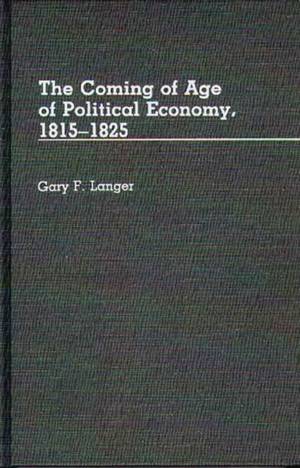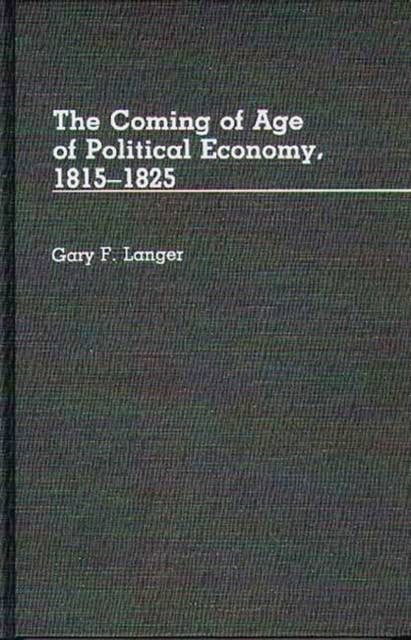
- Afhalen na 1 uur in een winkel met voorraad
- Gratis thuislevering in België vanaf € 30
- Ruim aanbod met 7 miljoen producten
- Afhalen na 1 uur in een winkel met voorraad
- Gratis thuislevering in België vanaf € 30
- Ruim aanbod met 7 miljoen producten
Zoeken
Omschrijving
The new Political Economy, which in 1815 captured the attention of a country exhausted by war and drained by economic crisis, was to have profound effects on British and, indeed, the Western world's economic and political life for more than a hundred years. Professor Langer's new study is the first to analyze fully the interplay of ideas, politics, and history in this crucial period of change. Rather than treating the theories of the classical political economists as a set of abstract formulations, the author looks at how they were actually applied to the political and moral problems of the day. He examines how the economists, their doctrines, and the ruling political alignments affected the course of history, particularly in the conflicts surrounding the Corn Law, the Poor Law, child labor, and the reform of the monetary system.
Specificaties
Betrokkenen
- Auteur(s):
- Uitgeverij:
Inhoud
- Aantal bladzijden:
- 242
- Taal:
- Engels
- Reeks:
Eigenschappen
- Productcode (EAN):
- 9780313256455
- Verschijningsdatum:
- 4/06/1987
- Uitvoering:
- Hardcover
- Formaat:
- Genaaid
- Afmetingen:
- 156 mm x 247 mm
- Gewicht:
- 544 g

Alleen bij Standaard Boekhandel
+ 322 punten op je klantenkaart van Standaard Boekhandel
Beoordelingen
We publiceren alleen reviews die voldoen aan de voorwaarden voor reviews. Bekijk onze voorwaarden voor reviews.











